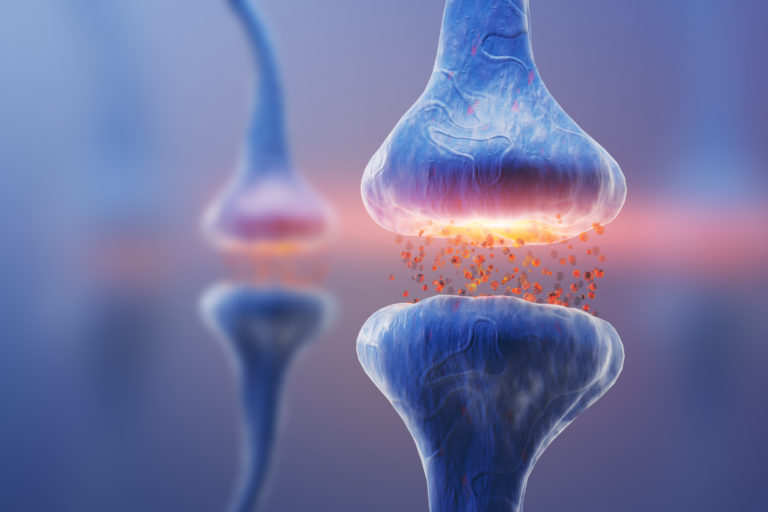Trending With Impact: Promising Non-Small Cell Lung Cancer Prodrug
Oncotarget, Trending
August 26, 2021The Trending with Impact series highlights Oncotarget publications attracting higher visibility among readers around the world online, in the news, and on social media—beyond normal readership levels. Look for future science news about the latest trending publications here, and at Oncotarget.com.
—
Between 20 and 40% of adults with non-small cell lung cancer (NSCLC) eventually go on to develop brain metastases. Over 40% of patients with NSCLC have limited treatment options due to a lack of actionable therapeutic targets. Treatment for such patients has been limited to non-targeted chemotherapy—an approach which increases the risk of developing drug-resistance caused by underlying resistance-associated mutations.
“Newer drugs that will be more potent and remain efficacious in NSCLC with such mutations could lead to better alternate or combinatorial therapies.”
Lantern Pharma (a pharmaceutical company developing targeted cancer therapies) created a new drug candidate and next generation member of the acylfulvene class of prodrugs, named LP-184. Researchers from Lantern Pharma and REPROCELL (a commercial contract research organization) conducted a study to test the anti-tumor activity of this preclinical compound in a variety of NSCLC cell lines. In 2021, Oncotarget published the research paper the team authored, entitled, “The acylfulvene alkylating agent, LP-184, retains nanomolar potency in non-small cell lung cancer carrying otherwise therapy-refractory mutations.”
The Study
Despite its highly-synthetic sounding name, LP-184’s lead product (Illudins) is derived from, you guessed it, Jack-o-Lantern mushrooms.
“Acylfulvenes have been derived from cytotoxic agents called Illudins, isolated from Jack-o-Lantern mushroom (Omphalotus illudens), that retain and improve the cytotoxicity of parent Illudins for use as anticancer agents.”
The anti-tumor activity of this compound is based on activation through reductive mechanisms when metabolized, mediated by enzymes such as Prostaglandin Reductase 1 (PTGR1). PTGR1 is known to be upregulated in some tumors, including tumors with mutations in the gene KEAP1. Researchers investigated LP-184 sensitivity in NSCLC cell lines with individual or combined gene mutations in KEAP1, KRAS, TP53, and STK11.
“There is a high unmet need for effective therapies for NSCLC harboring mutations in these genes that have not only been considered undruggable till date but also are associated with loss of efficacy or resistance to multiple therapeutic strategies, at least in frontline regimens.”
LP-184 was tested in vitro in 19 primary and metastatic NSCLC cell lines to determine the range of NSCLC settings that this compound might work best in. Clinical data analyses were also conducted by the researchers to predict tumor responsiveness to LP-184. In addition, the compound was examined in two mouse models of primary lung cancer. Mouse models were tested for sensitivity to LP-184 in both two- and three-dimensional culture systems.
“We sought to assess LP-184 activity in a panel of selected NSCLC adenocarcinoma cell lines, determine associations between genomic and transcriptomic profiles and responses of cell lines tested, and compare in vitro potency of LP-184 with that of approved chemotherapy agents.”
Conclusion
Among their many findings, the researchers demonstrated that LP-184 has high nanomolar potency in 11 of the 19 NSCLC cell lines tested—indicating broad NSCLC anti-tumor activity. In vivo, LP-184 showed efficacy in terms of tumor regression in one of the two mouse models.
“We propose further evaluation of LP-184 in multiple PTGR1 high NSCLC settings that may not necessarily be mutually exclusive, including in highly prevalent KEAP1 and KRAS mutant tumors (Figure 6), and in patients with lack of actionable targets or resistance-related genes with no effective therapy options available.”
Click here to read the full research paper, published by Oncotarget.
YOU MAY ALSO LIKE: More Oncotarget Videos on LabTube
—
Oncotarget is a unique platform designed to house scientific studies in a journal format that is available for anyone to read—without a paywall making access more difficult. This means information that has the potential to benefit our societies from the inside out can be shared with friends, neighbors, colleagues, and other researchers, far and wide.
For media inquiries, please contact media@impactjournals.com.
